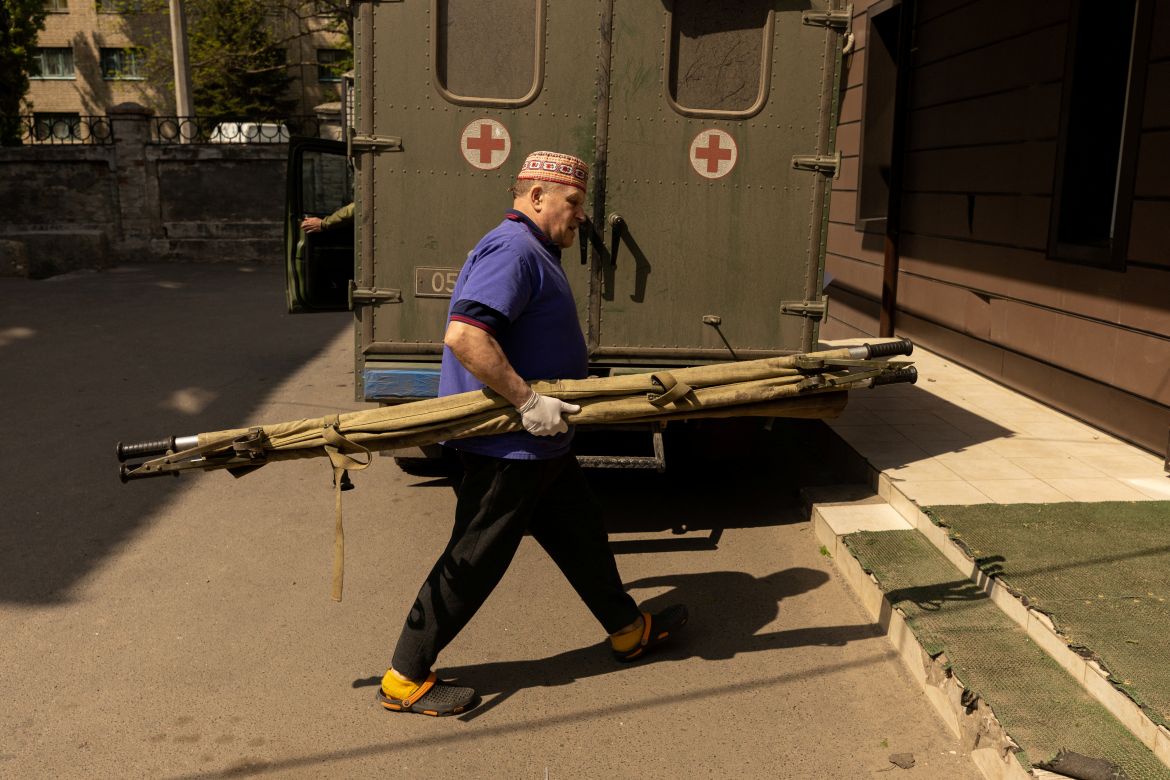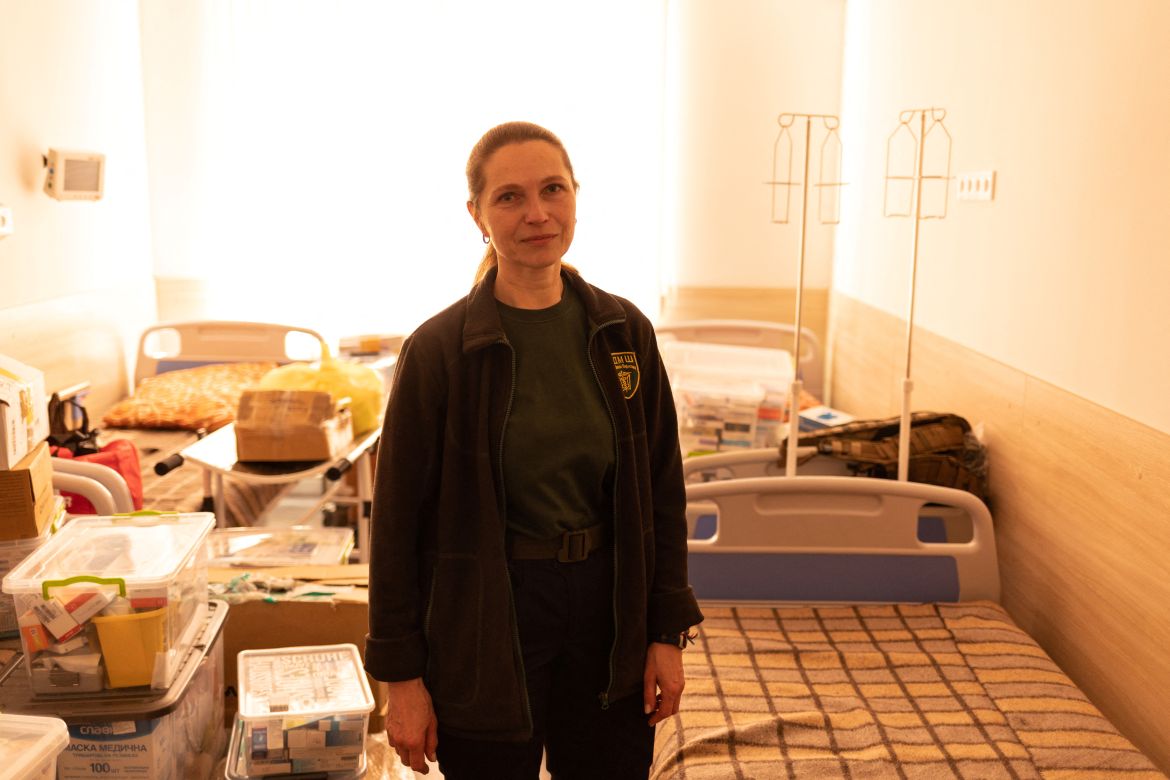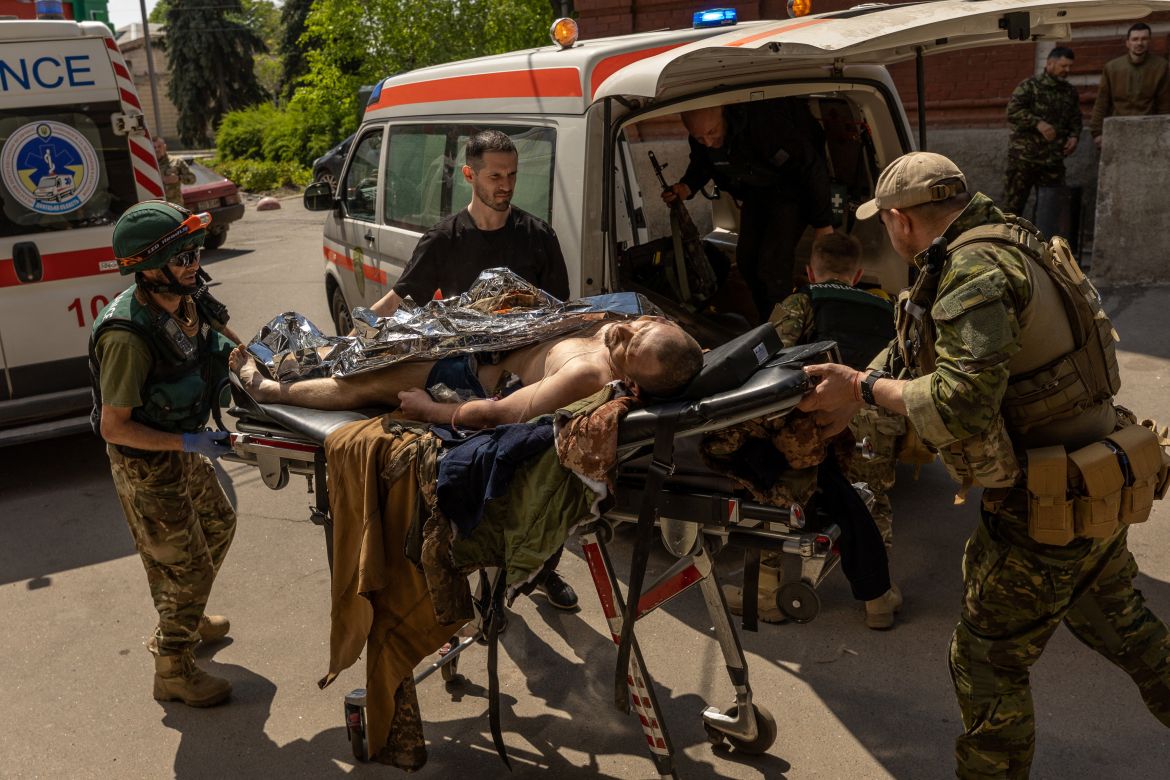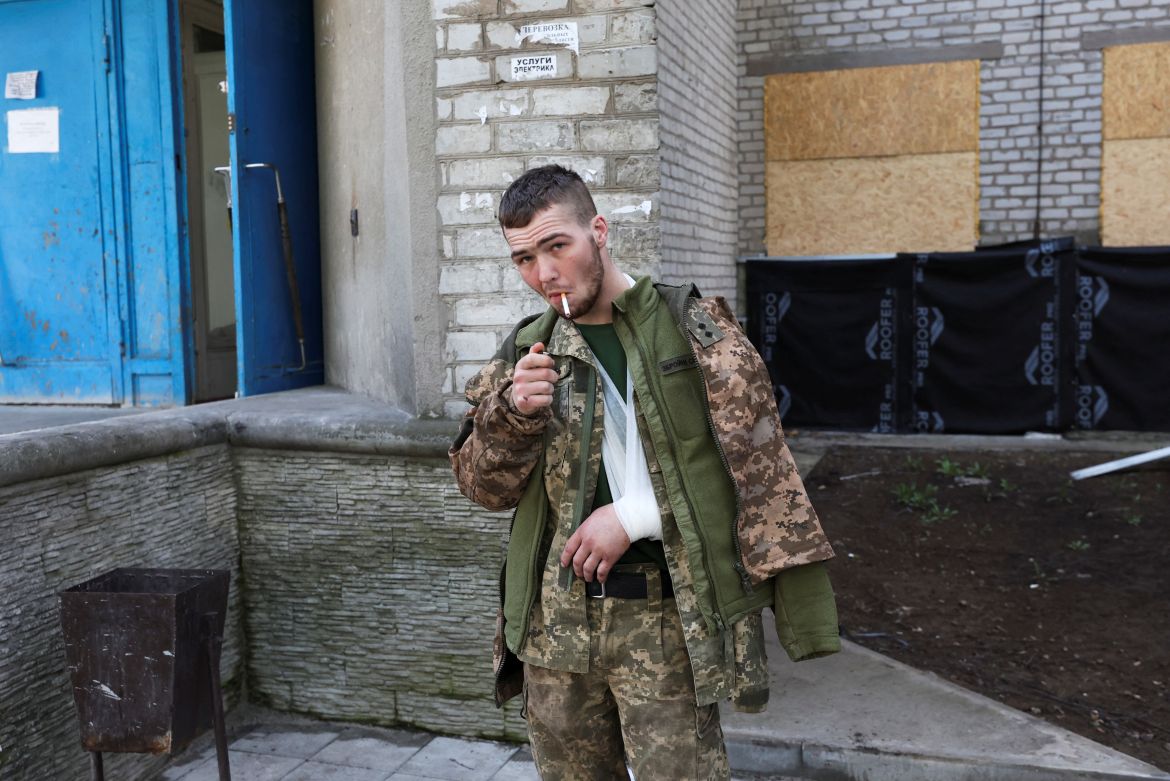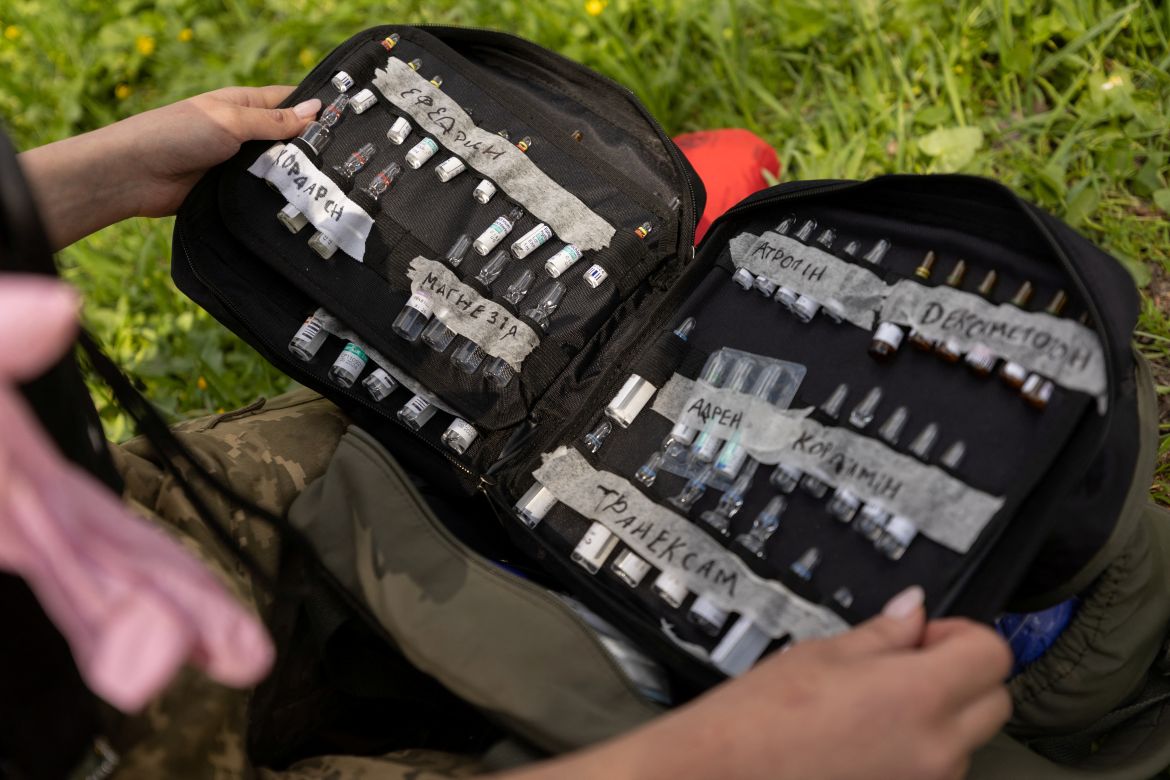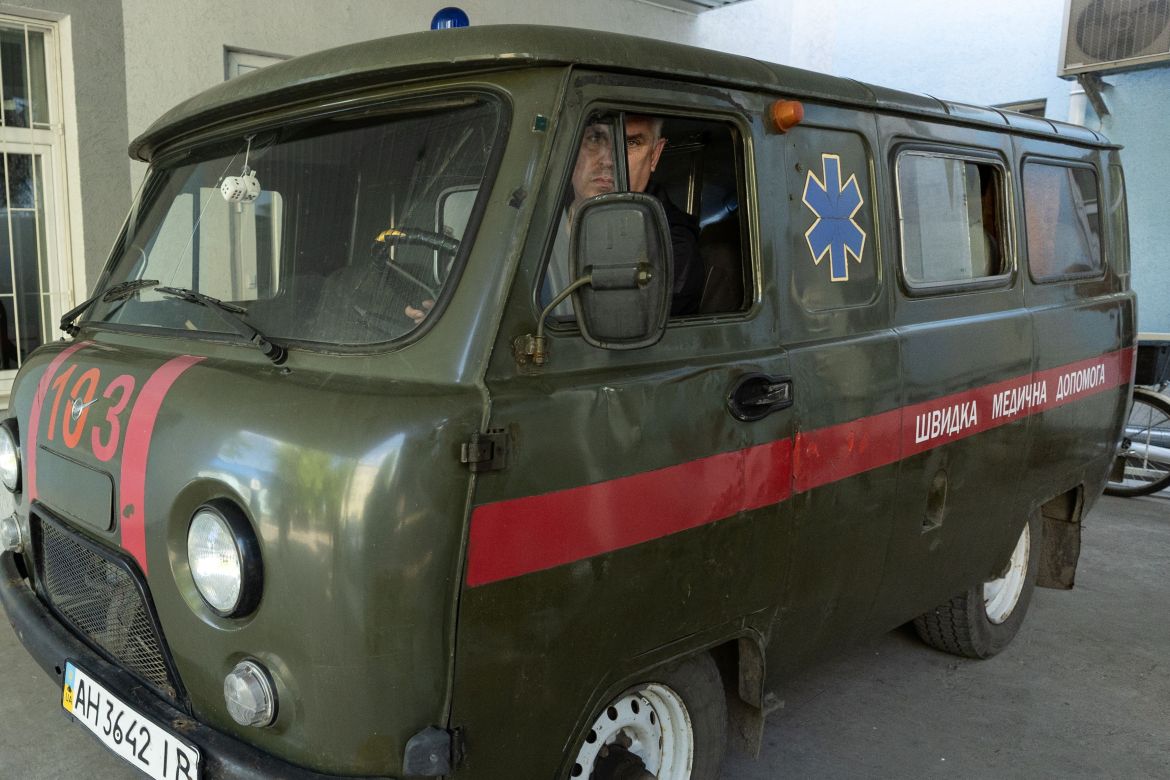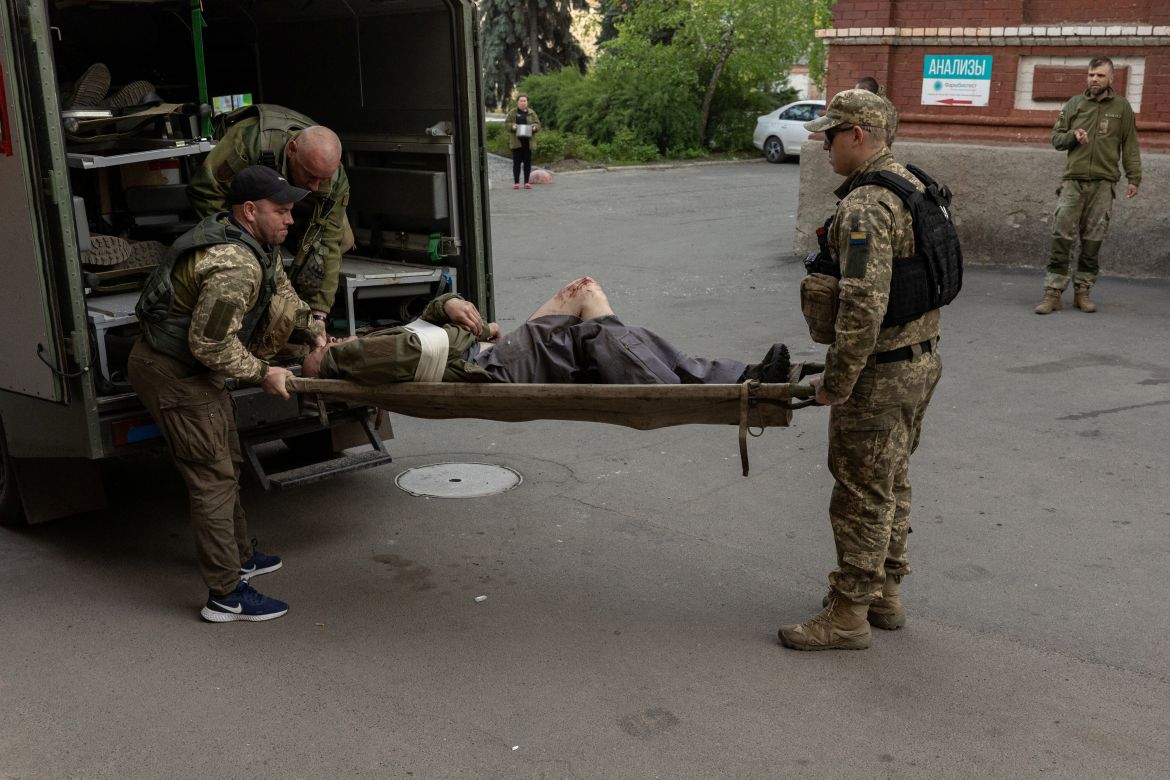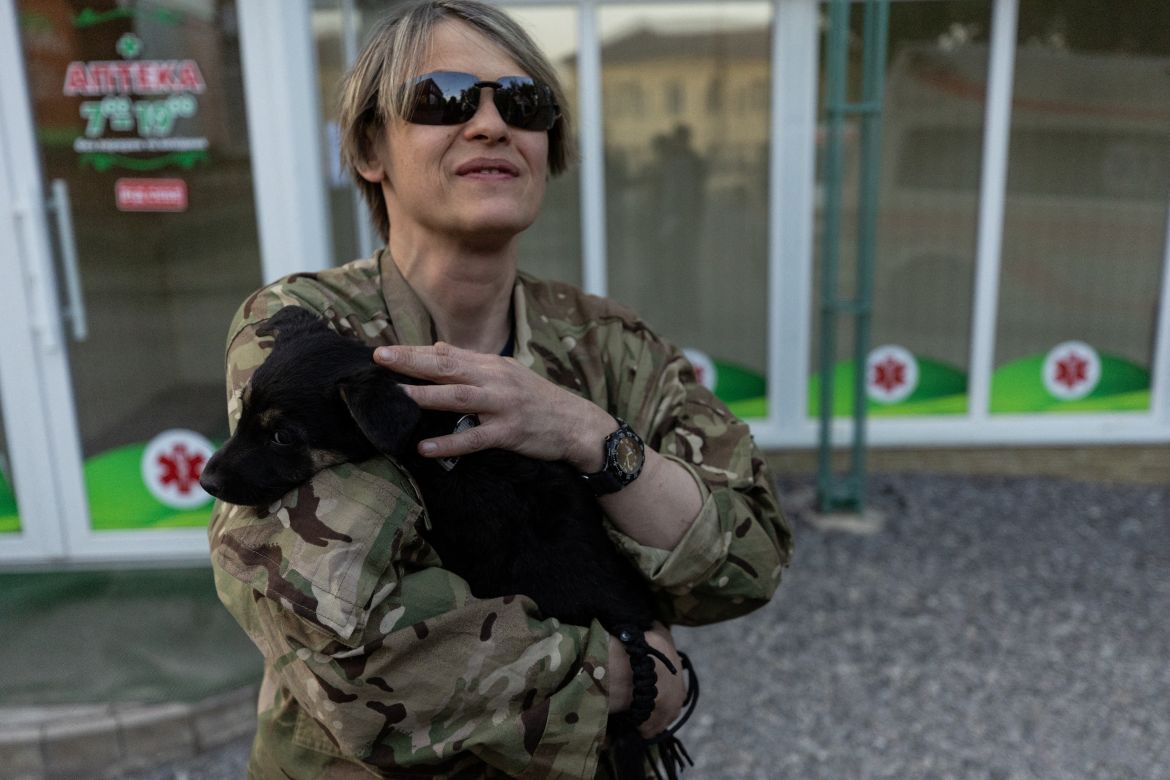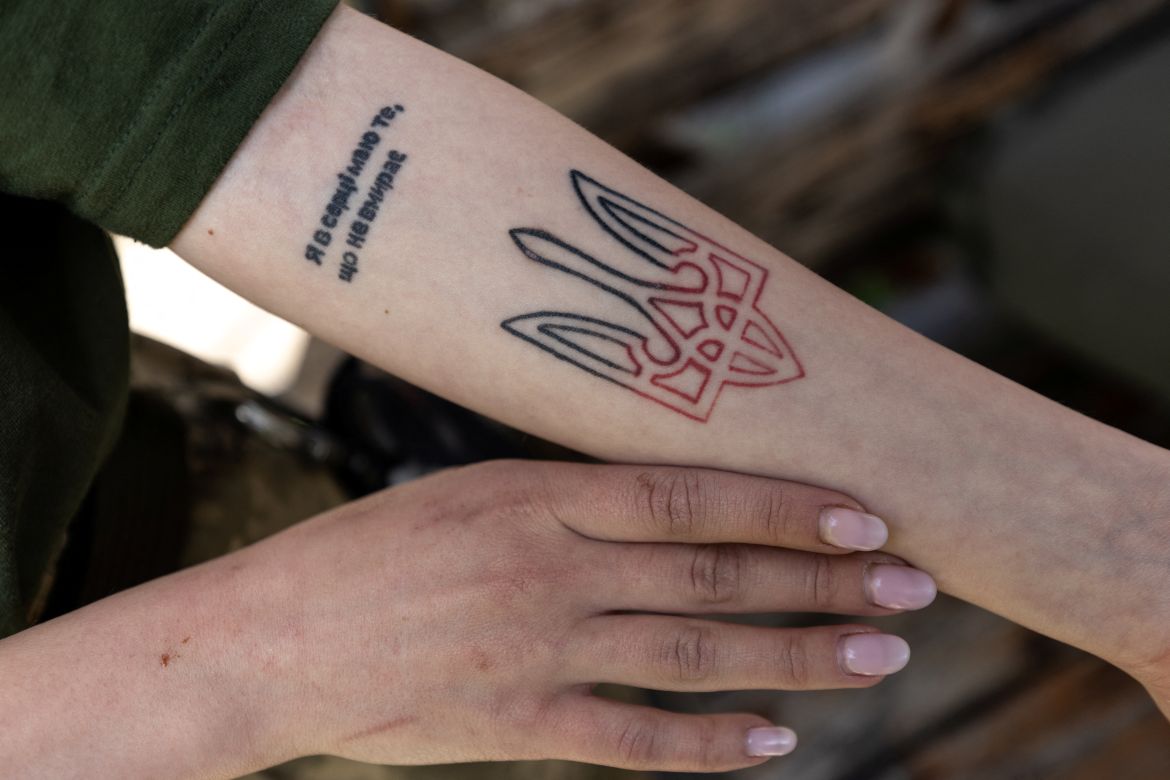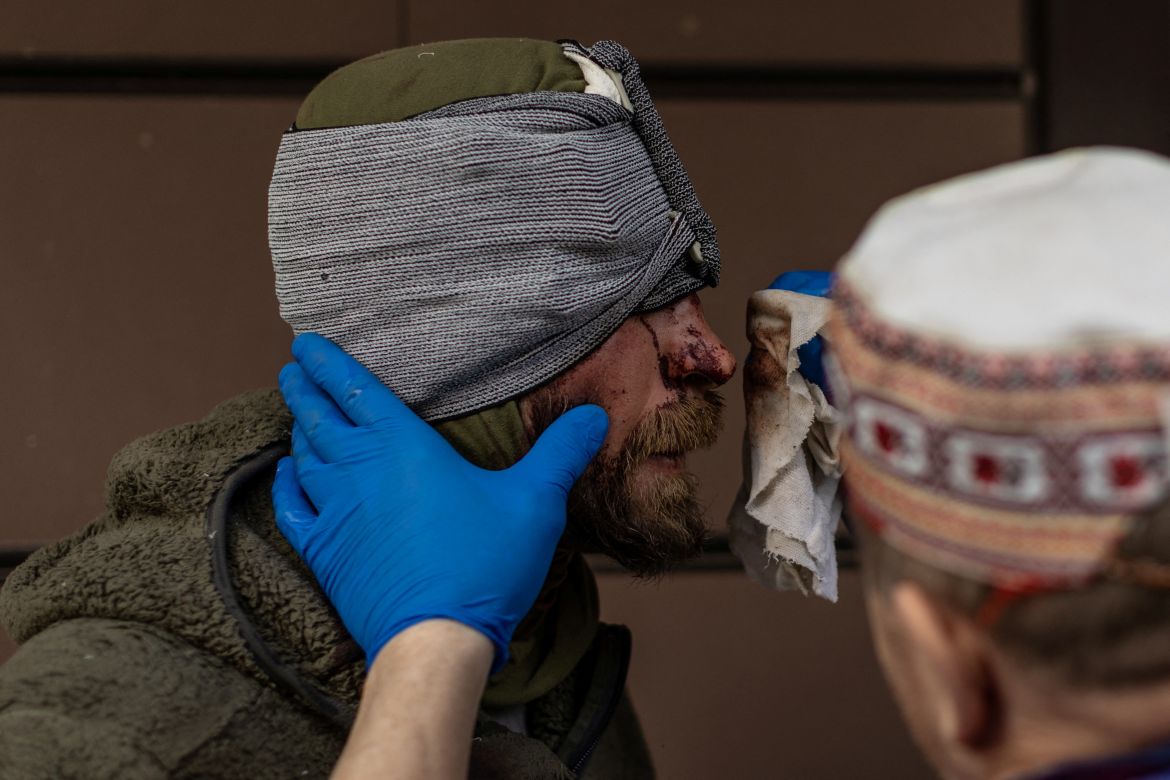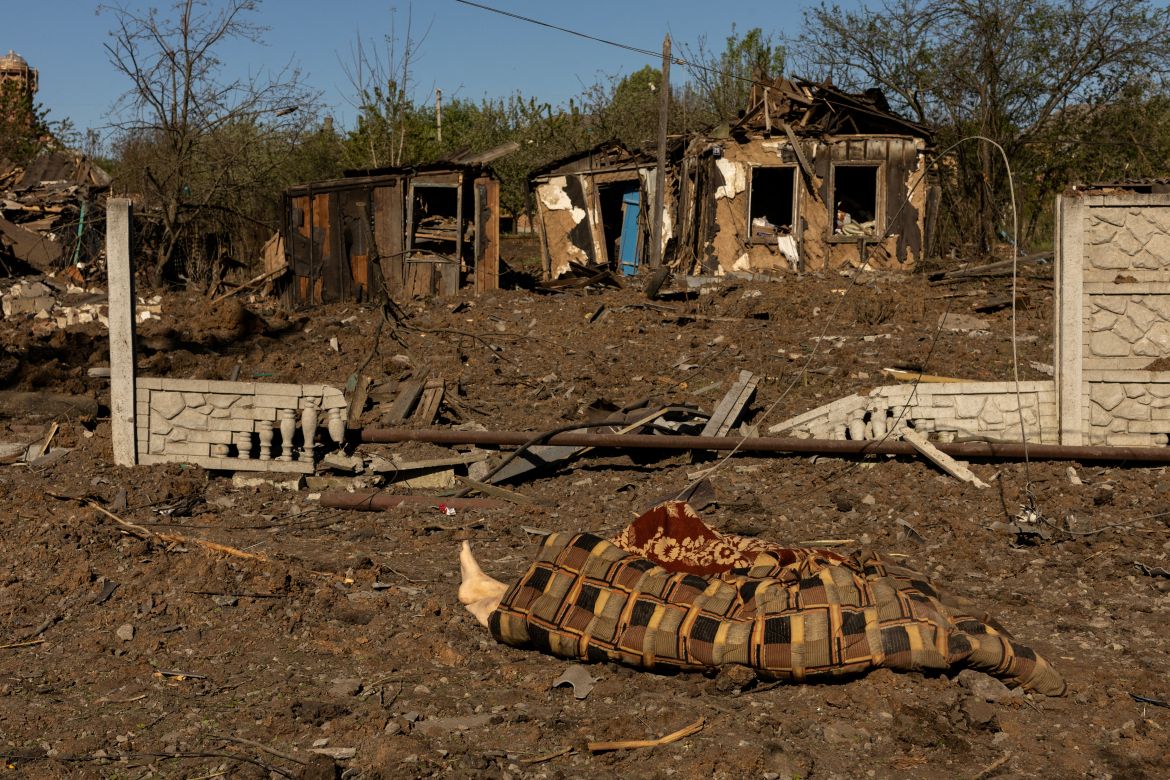In Pictures
Photos: Ukrainian medics battle to save lives as casualties mount
The scale of the front line with Russian forces has pushed Ukraine’s resources to the limit.
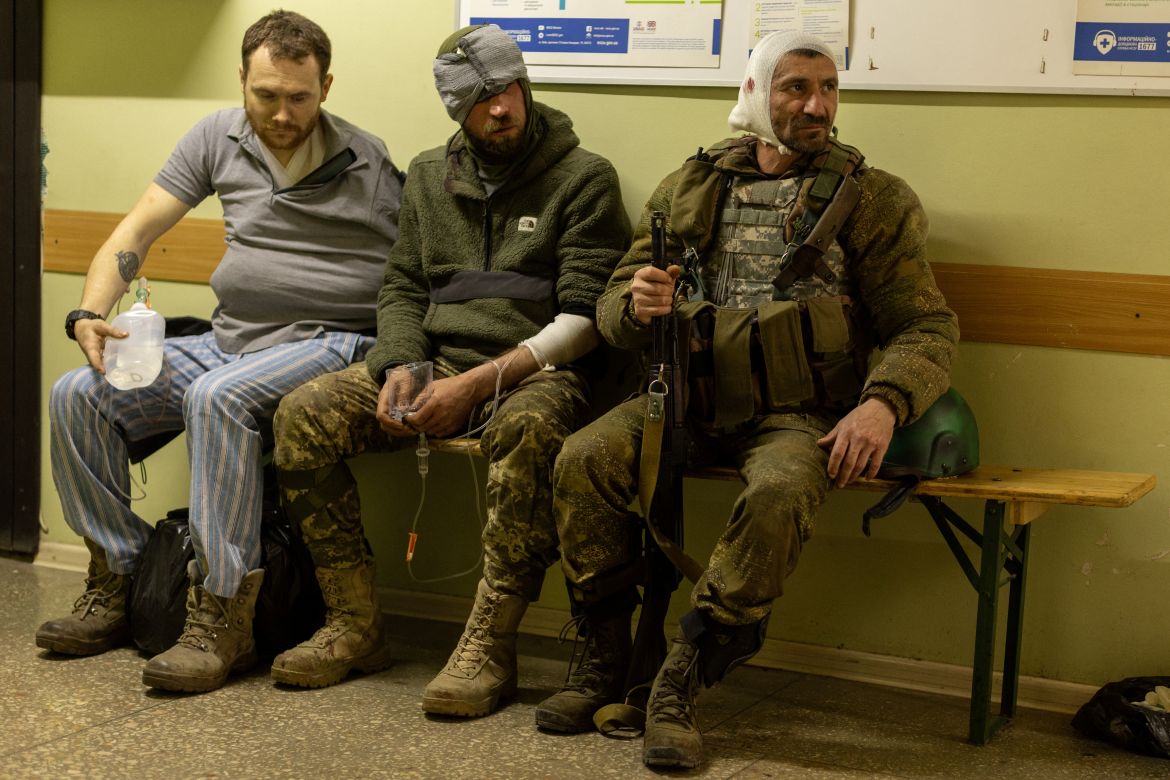
The hospital in the small eastern Ukrainian city of Bakhmut was never intended to receive queues of ambulances bringing the wounded and traumatised from the front line of Europe’s biggest battlefield.
Nor did the volunteer paramedics expect, four months ago, to be shuttling back and forth to the front line of a brutal tank battle, within earshot of rockets and shelling.
“I haven’t seen so much human tragedy before. Absolutely unnecessary suffering,” said Elena Bulakhtina, a Russian-born Canadian medic who joined the Pirogov First Volunteer Mobile Hospital, a group of civilian healthcare professionals dedicated to providing medical care on the front line.
The hospital’s main job now is to “stabilise” the injured from the battle zone around the town of Popasna in the Luhansk region so that they can be moved on to bigger hospitals in western Ukraine, further from the main battle.
The sheer scale of a front line that stretches for hundreds of kilometres has pushed Ukraine’s resources to the limit.
Some of the ambulances arriving at the hospital are second-hand German or Polish ones. A few metres from the emergency entrance, a wooden door used as a stretcher lies covered in dried blood.
“We’ve come from hell,” said Igor, an exhausted-looking, mud-covered soldier who joined the fighting a few days after the invasion started in February. He is among a group of soldiers diagnosed with post-traumatic stress disorder (PTSD) waiting at the hospital to be evacuated.
“They attacked us with everything – artillery, aeroplanes – they were shelling everywhere, day and night,” he said. “We were in the battle for almost six days. Popasna is completely destroyed.”
About 70km (44 miles) northwest of Bakhmut, 20-year-old volunteer Aleksandra Pohranychna does not even have an ambulance.
She is the only paramedic serving her unit and waits in the town of Sviatohirsk until soldiers take her to the front or bring the wounded to her.
“I decided to join and help,” she says. “We have to do it.”
